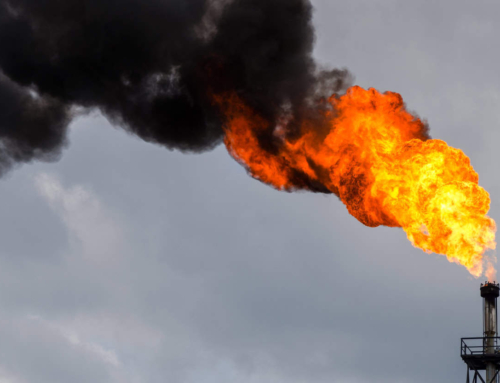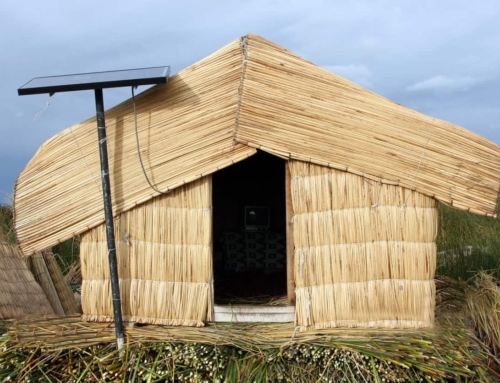The problem with climate breakdown isn’t that the earth has developed a fever to throw off the virus of manmade carbon pollution and us humans as well. It is that we’re not breaking down the climate fast enough. Wait, we are breaking down the climate. Aren’t we all going to be toast in twelve years? No, we have to break climate down faster. Let me explain.
The issue of climate is big, amorphous, and hard to get our hands around. People have a lot of other problems. Getting a job that allows them to feed their families, or figuring out how to pay for health insurance, or treating their kid’s asthma. Typically, the climate doesn’t rate as one of the top three problems that Americans are worried about.
As humans we have the capability to solve problems. But why do we pick certain problems and not others? Clearly, we aren’t really picking the climate crisis. The answer has something to do with the nature of the climate problem and our innate instincts to deal with certain problems. The active word is problem.
In order for us to focus on a particular problem, it has to have several characteristics.
1. It needs to be local in proximity and current in time.
If the problem is far away or won’t happen for years then its not likely to motivate us to work on it. It’s a little like smoking cigarettes. We rationalize they’ll have a cure by the time we get sick. When we talk about climate in 2050 that sounds like a long time away. When we report flooding in Bangladesh we don’t pay attention compared to flooding in our back yard.
2. The problem also has to be capable of being solved.
People are more interested in solutions than problems. If you give society a problem with no solution, we tend to tune out that problem since we can’t collectively act on it.
3. Problems also need to be in our control.
Can we answer the question, what can I do? While personal accountability is necessary, climate is a collective issue. It’s unlikely that personally recycling plastic bags will help keep the icecaps from melting. If I can’t really help, then I am going to tune you out.
4. The consequences of that problem have to be serious, painful or embarrassing.
Here’s where climate communicators overdo it. We tell people that the problem of climate is serious, that the world is going to end, but unless our audience is experiencing it, they tend to doubt it. Intellectually I may understand the icecaps are melting, but I may not believe I am personally affected. The question is, “Can I see how it will affect me and my family?”
5. The problem can’t be chronic or perpetual.
There are not many people that can sustain effort working on huge problems like global warming. We like to see results, not endless effort. We grow weary otherwise.
The climate problem has many of these attributes. It appears neither immediate in time or distance. It sounds serious, but I may not be feeling it. There is not one solution, and the problem appears chronic. It has the characteristic of being a collective problem rather than a problem with individual control. In short, it seems overwhelming.
So here’s where we need to breakdown climate faster. Many of these barriers can be overcome by breaking the problem into smaller parts, working on solutions to those, and measuring progress.
For example, the larger problem of eliminating fossil fuels can be broken down into electrifying everything quickly with renewable energy. This can be addressed by breaking the problem into smaller pieces of eliminating fossil fuel electricity generation and electrifying the transportation sector. Within the transportation sector, it can further be broken down into mass transit, individual transit and commercial transit. Next let’s break down mass transit into trains and buses. After that let’s break buses down to all buses in the US or buses in your city. Then let’s break that down into all buses in your city, or ten electric buses. And so on until the problems are solvable.
I can work to get ten electric buses in my city. I can measure the progress toward a fleet of electric buses. Yet we constantly hear every doomsday headline possible… “Greenland Ice Sheet Melting Four Times Faster Than Scientists Predicted.” Those of us in the climate movement mistakenly echo these headlines believing it will increase urgency and move people to act. We’re doing this in response to climate denial. But it doesn’t help. It creates fatigue and disengagement. Why? Because of the nature of the problem.
Let’s hear less in our broadcast communications about doom and more about adding ten new electric buses to our city fleet, and how we can help with that. Let’s hear about how these new buses are reducing the cases of asthma in our city while also helping with the climate crisis. Let’s tell more stories about the underlying values of taking care of our citizens and kids with asthma. This doesn’t mean dismissing what is going on with the climate crisis. It means tying it to meaningful local action. It means balancing the “world is going to end” broadcasts with news on progress.
Finally, something magical happens when we break climate down faster. People get a sense of empowerment and reward. They can see progress. They are part of something bigger than themselves. They become connected by the values we share which are more important than the problem. People act because of these values. They are part of a community that cares and works for fairness, justice and inclusivity. The value becomes our motivation, not the problem. We all want the same things and share many values. This in turn attracts others. And there are millions of people that want to help.
Break climate problems down faster. Measure progress. Focus on your values. Get on the bus.
‘We are all connected. Savor the Earth!’™
Hobie,
L. Hobart Stocking
SkyWaterEarth.com
hobart@skywaterearth.com
651-357-0110
Facebook: @SkyWaterEarthConnected
Twitter: @SkyWaterEarth








Leave A Comment